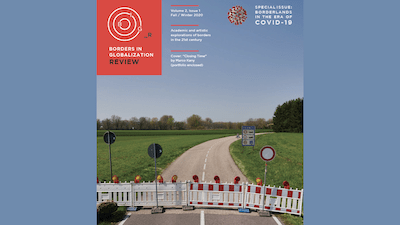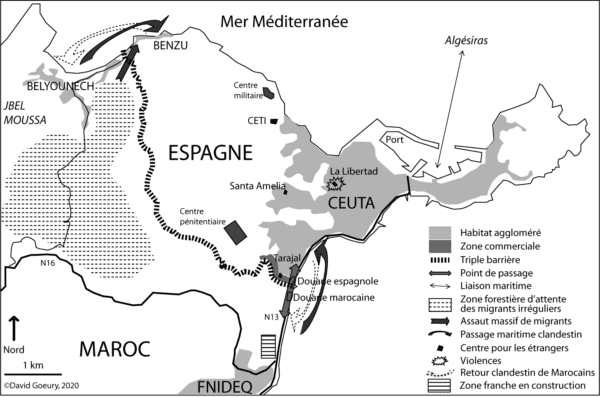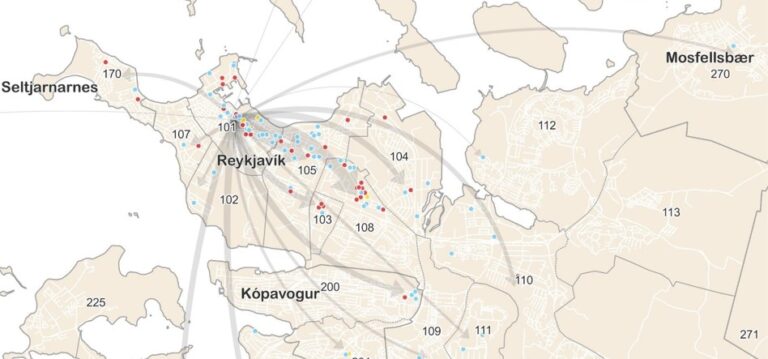
Participation de David Goeury à la revue « Borders in Globalization Review »: Special Issue: Borderlands in the Era of COVID-19
Un article de mise en perspective à l’échelle planétaire.
Adrien Delmas, David Goeury « Bordering the world as a response to emerging infectious disease. The case of SARS CoV-2 »
Abstract
Facing emerging zoonose SARS-CoV-2, states decided unilaterally to close borders to individuals and revealed deep processes at work ‘bordering of the world’. Smart borders promoted by international organizations have allowed the filtering of indispensables (merchandise, data, capital and key workers) from dispensables (human beings) and, above all, the redefinition of the balance of biopolitical power between state and society. The observation of the unprecedented phenomenon of the activation and generalization of the global border machinery captures a common global dynamic. After a round-the-world tour of border closures between 21 January and 7 July 2020, we concentrate on a few emblematic cases: the Schengen zone, the USA–Canada and USA–Mexico borders, Brazil–Uruguay, Malaysia–Singapore and Morocco–Spain. We interrogate the justification and the strategies of border closure in a context of the global spread of an emerging epidemic, going beyond the simple medical argument. Choices appear to be dependent on ideological orientations henceforth dominant on the function and role of borders. We will discuss the acceleration of the bordering of the world, the forms of its outcome and its difficult reversibility
Cet article s’appuie sur une animation accessible ici qu’il est possibel d’insérer :
Le texte est téléchargeable ici :
Et un court essai sur le cas de la frontière Ceuta- Bab Sebta entre l’Espagne et le Maroc.
David Goeury, Ceuta–Bab Sebta (Espagne–Maroc), le SARS-Cov-2 comme accélérateur de la reconfiguration frontalière
Abstract
La frontière Ceuta-Bab Sebta est un point de tension récurrent entre les autorités marocaines et espagnoles. Cette enclave espagnole en Afrique est devenue l’un des points d’entrée des migrations clandestines en Europe mais aussi d’un commerce atypique au Maroc. La crise du SARS-CoV-2 a constitué une opportunité pour les autorités marocaines pour mettre fin au commerce atypique aux dépens des transfrontaliers marocains.

Le texte est téléchargeable ici :



